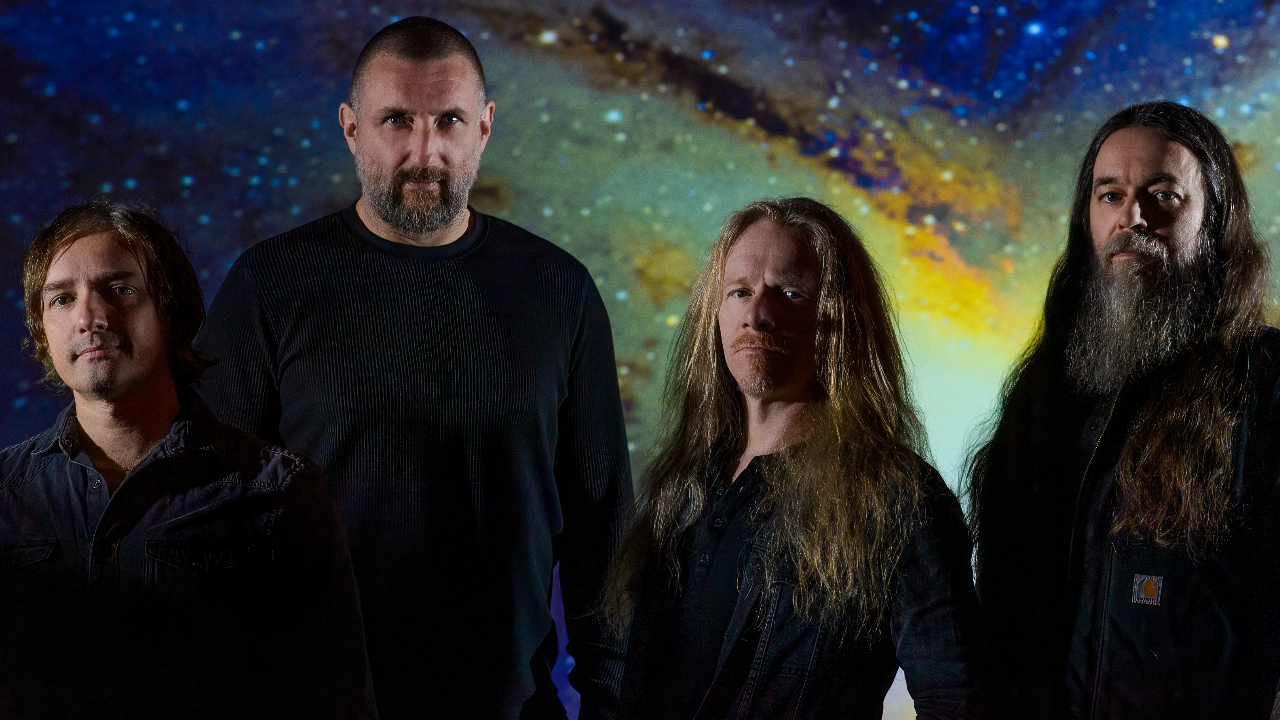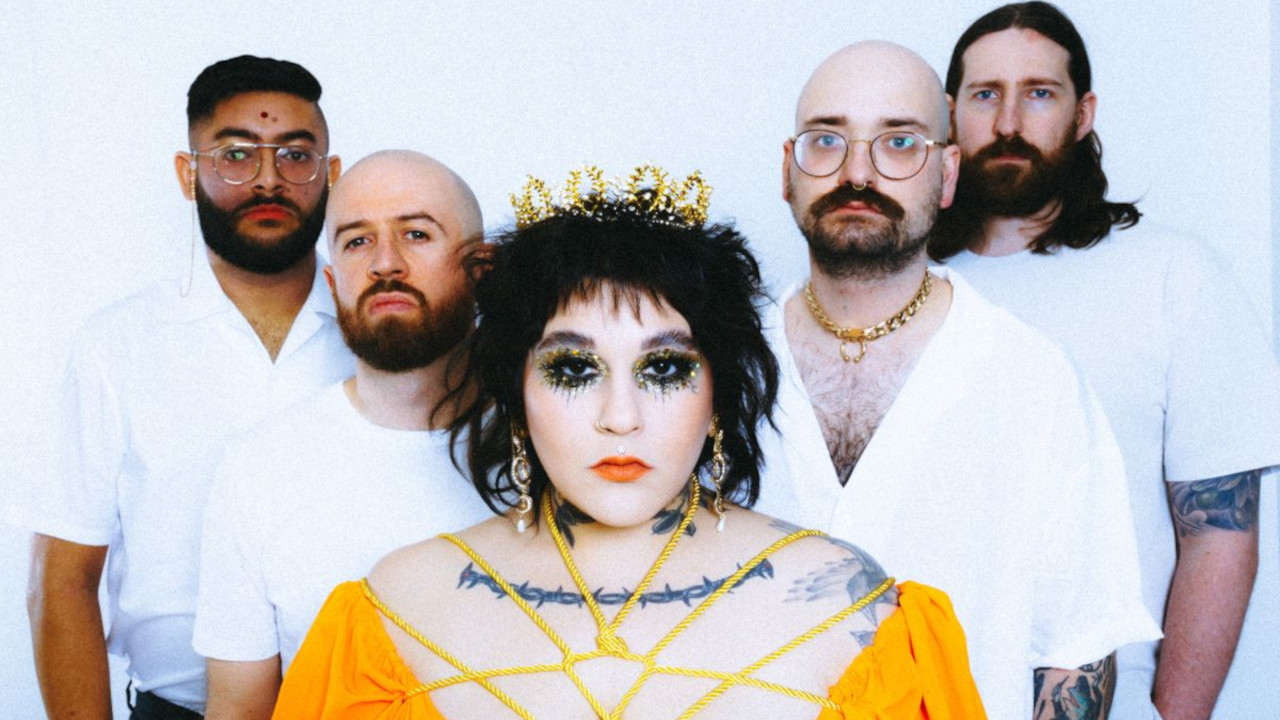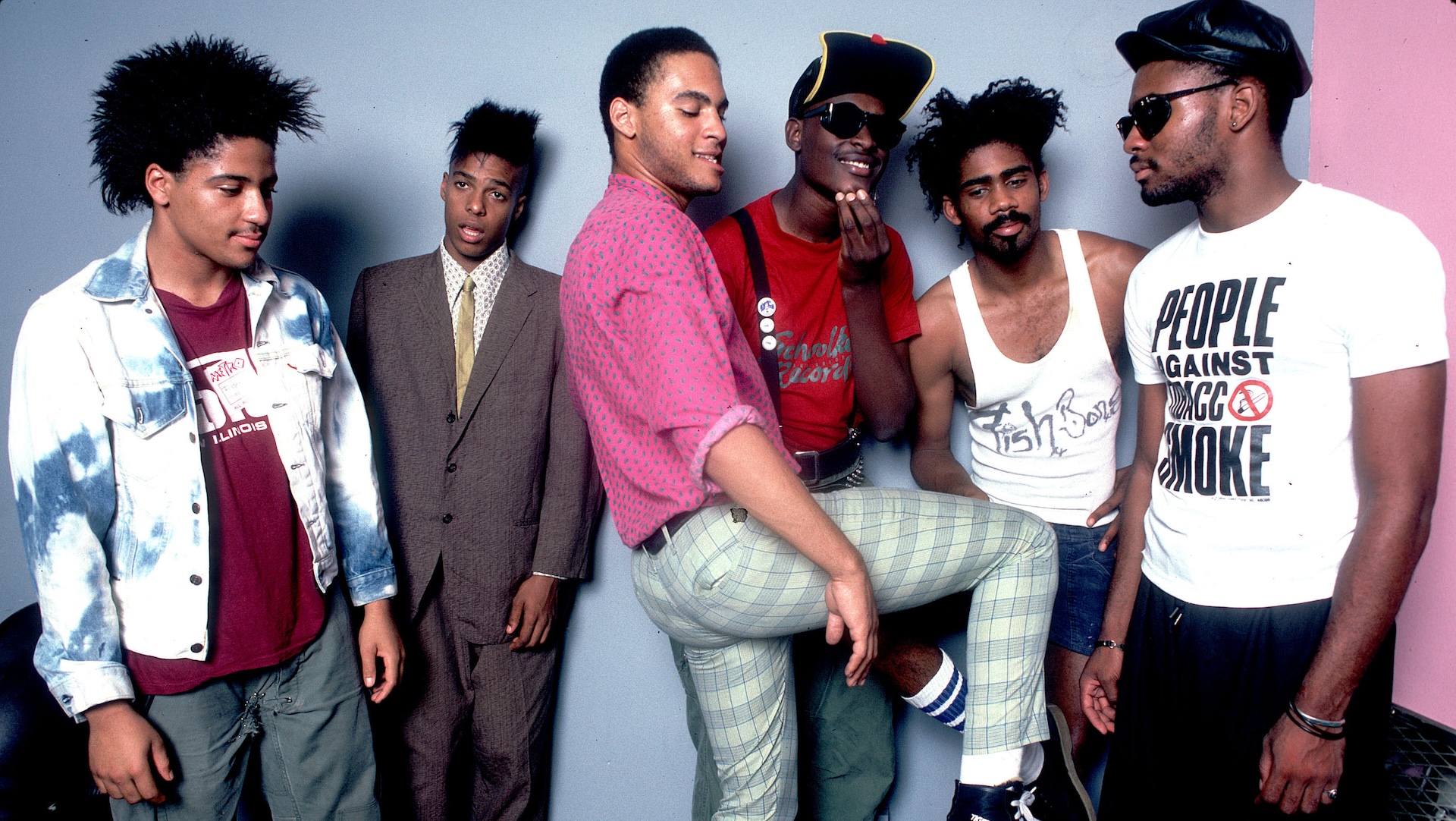“The more successful we become, the lonelier it gets”: Why your favourite British metal bands are breaking up
UK metal beloveds Svalbard, Orange Goblin and Ithaca will all split in the coming months. Their reasons why hint at a grim future for the country’s alternative artists.

Select the newsletters you’d like to receive. Then, add your email to sign up.
You are now subscribed
Your newsletter sign-up was successful
Want to add more newsletters?
Just as inevitable as death and taxes is the fact that, one day, your favourite band will stop making music. The luckiest people won’t have to wrestle with that until their idols have been around for many years and made dozens of albums, but followers of the British metal scene haven’t had that kind of fortune lately.
In the last ninemonths, three standard-bearers of heaviness – stoner metal veterans Orange Goblin, post-metal adventurers Svalbard and metalcore crusaders Ithaca – have all announced their impending break-ups. Though uniquely personal, some of their reasons combine to paint a worrying picture: that trying to make ends meet as a touring metal musician in the UK has become tricky to impossible.
Ithaca announced their parting first, in October, and frontwoman Djamila Azzouz explained to Metal Hammer in February, “We can’t afford to be in a band.” Their guitarist, Sam Chetan-Welsh, outs himself as one of the “key drivers” of the split when I talk to him in June, two months ahead of the band’s farewell performance at Arctangent festival in Bristol. He lists multiple factors, such as viewing latest album They Fear Us and the subsequent US tour as insurmountable career highlights, but backs up what his singer said.
“If we could be a lot more choiceful about touring and recording and still keep things going, then maybe we could have kept it going,” he says. “But it’s not sustainable. Touring is such an unbelievable investment. Recording is an unbelievable investment. And ironically, now that we’re breaking up, this is the first time where our finances as a band are healthy.”
News of Orange Goblin going their separate ways followed in January. Vocalist Ben Ward says that the four-piece, three of whom co-founded the band 30 years ago, have individual reasons for stepping away. His include maintaining his newfound sobriety, spending more time with his wife and son, and focussing on his career as a booking agent, after a stab at Orange Goblin going full-time in 2013 quickly proved untenable.
“We did about 161 shows [that year],” he remembers. “We did two North American tours, we did two European tours and we went to Australia. It was a massive strain for all of us. A band like Orange Goblin, as much as we love it, financially is just not viable for us to survive.”
In a statement to Hammer last month, singer/guitarist Serena Cherry confirmed Svalbard’s end, pinning it on creative differences as well as a hope to avoid a decline in quality after releasing four acclaimed albums. When talking to me, she’s quick to blame money for the disbanding as well.
Sign up below to get the latest from Metal Hammer, plus exclusive special offers, direct to your inbox!
“The biggest challenge, being a metal band of Svalbard’s size in the UK, is balancing a day job with touring,” she says, “because we don’t make any money off of Svalbard. All the money that comes from shirts and stuff goes into van hire, petrol, printing more merch, recording albums and making music videos. A lot of it [the reason for breaking up] is financial.”
I pushed my body way, way, way past what it was capable of doing
Sam Chetan-Welsh, Ithaca
Cherry works for a gaming magazine full-time. She adds that the limited amount of annual leave she can take has led to her doing nine-hour days while on the road. “I haven’t enjoyed a tour in quite a while, because I’m not getting any sleep,” she admits. “When we did our show in Tallinn, Estonia [in November], because of the time difference, I finished a meeting and went onstage 10 minutes later.”
Chetan-Welsh, who had a job at Greenpeace for much of Ithaca’s tenure, encountered similar stresses. During the recording of They Fear Us in 2022, the guitarist had a “bad month” where he was ill with shingles: he believes he caught it due to the pressure of sustaining a career and making an album simultaneously.
“I was working in the morning and then recording all day every day for almost two weeks,” he reflects. “I pushed my body way, way, way past what it was capable of doing. That was a wake-up call moment: I had to re-address everything.”

Sadly, the sheer difficulty of earning a living wage as a touring metal artist isn’t a new story. In 2022, Brazilian aggressors Irist tried to crowdsource $20,000, seeking to recoup their losses from a European tour. More recently, Hammer spoke to UK metalcore outfit Vexed about a Gofundme they set up in the hopes of reclaiming £34,370 after a 24-date trek.
Ward thinks something needs to have gone disastrously wrong for a band to end up in that level of debt. “If they’ve had costs like that, then someone somewhere has fucked up,” he tells me. “I work as a booking agent and generally, when I book a tour for a band, I will send it to whoever’s in charge to approve the budget before we even start thinking about confirming it. The fact that they were that deep in the hole means that someone hasn’t done their maths right.”
Cherry, however, is more understanding. She reveals that Svalbard forked out about £24,000 to have a bus with bunks during their five-week tour supporting Alcest last year. It marked a change from their usual practice of sleeping on the floors of local friends and promoters.
“We try and cut corners where possible,” Cherry adds. “For example, I’ll always do the merch. If you have a merch person, then you’re looking at another expenditure every night, paying that fee. It’s a nice way to talk to people after the shows, although I do always worry: you have this battle of trying to keep your voice. You’ve got to keep your voice for the two, three weeks left of a tour, and you’re trying to shout while another band’s playing to sell some t-shirts.”
As well as the financial and professional sacrifices of touring, there are the social ones. Cherry missed both of her nieces being born because she was out playing with Svalbard. “The more successful your band becomes, the lonelier it gets,” she summarises.

Ward, whose first US shows came shortly after his wife gave birth in 2002, says he “missed [his son] growing up”, while Chetan-Welsh describes his touring schedule as “one of the biggest challenges my marriage faced”.
“It creates very difficult dynamics,” he elaborates. “You’re going off and living your dream, but it’s also really hard and body-ruining and shit. You come back and you need to be scooped up by your partner, but your partner’s like, ‘No, you’ve been away, off in Europe or America or whatever, and I’ve been sat here.’”
Fortunately, none of the bands will disappear without fanfare. While Ithaca ready themselves for Arctangent (following their last-ever headline concert in London in February), Svalbard are gearing up for a final UK tour in November, then European and Japanese tours and a final song in 2026. Orange Goblin are currently playing the festival circuit and will bow out with a UK/Ireland run in December.
We did 161 shows in a year. It was a massive strain for all of us.
Ben Ward, Orange Goblin
I ask Ward why it’s so important for his band to not vanish without saying goodbye to live crowds. “Originally, this year was going to be a celebration of our 30-year anniversary,” he answers, “and a lot of the festivals that we’re playing this summer, we’re going to be doing a set of material from throughout our career. Then we decided that we were going to call it a day. We thought, ‘Well, we should let people know.’”
Cherry feels similarly. “Anyone who’s ever cared about Svalbard or connected with our music deserves a chance to see us live,” she states, before emphasising that they’ll tour in an even more economical way than usual: “We’re not taking a sound engineer, we’re not on a tour bus and some of the venues are bigger.”
None of the bands would like to proceed as a studio-only force. Svalbard still have that fear of songwriting decline holding them back (but Cherry will continue with her one-woman black metal project Noctule), whereas Ithaca believe their music would suffer for it and Orange Goblin wouldn’t enjoy it. “We’re not the Beatles,” Ward grins.
Clearly, though, the demands of touring needn’t be a death knell for UK bands: the likes of Sleep Token, Bring Me The Horizon and Architects have risen from the pub leagues to arena-calibre within the last 10 years. Cherry argues that there should be more government infrastructure in place to help alternative acts reach those levels.
“There’s a real lack of support for underground and alternative music from the government,” she says. “In the UK, there’s a lack of funding and appreciation. You go to Sweden: musicians and festivals and everything get proper funding from the ground up. Music is kind of viewed as a hobby in the UK, especially alternative and heavy music.”
Chetan-Welsh shares her concern. Ithaca got up-and-comers Forlorn and Knife Bride to support them at their London swansong, hoping to give the local scene a leg-up on the way out. That said, no one can guarantee their future should things stay as they are.
“Knife Bride and Forlorn are perfectly positioned to grab the ball and take it forward,” says the guitarist. “But, if the infrastructure is not there to support them, that does make me worried about how the underground will carry on. There will always be something – it’s just, how much is it able to thrive?”
Hopefully, things will change for the better and touring won’t just become a privilege for the well-off and/or the corporately endorsed. But it’s looking unlikely for the time being. As stadium-sized metal shows get more frequent and more expensive – and the cost of living crisis continues – the disposable income that fans have for local gigs dwindles. All the while, independent festivals (such as post-metal weekender Portals) and small venues are disappearing.
“A lot of festivals are changing their dynamic,” Ward adds. “There are guaranteed ticket-sale headliners, and if that mean repeating their lineup every few years, then that’s what they’re doing. They know they’re going to sell tickets rather than take a chance on a new headliner or an up-and-coming band and give them shots.”
Any true government backing seems like a distant notion, with a recent Mayor Of London “campaign” for grassroots music consisting only of the publication of a tube map with some names on it. It appears that change needs to start from the bottom-up, but the good news is that anything is helpful. According to Cherry, even just talking about rising bands can have an impact.
“You can forget how powerful word-of-mouth is,” she says. “If you find a new band that you really like, tell your friends in-person! Let your passion in your voice actually shine through, rather than just being a message and a Spotify link. That’s the kind of thing that I think could really make a difference.”
Ithaca will play their final show at Arctangent festival in August. Svalbard will tour the UK for the last time in November. Orange Goblin have several festival dates this summer and will tour the UK in December.

Louder’s resident Gojira obsessive was still at uni when he joined the team in 2017. Since then, Matt’s become a regular in Metal Hammer and Prog, at his happiest when interviewing the most forward-thinking artists heavy music can muster. He’s got bylines in The Guardian, The Telegraph, The Independent, NME and many others, too. When he’s not writing, you’ll probably find him skydiving, scuba diving or coasteering.


